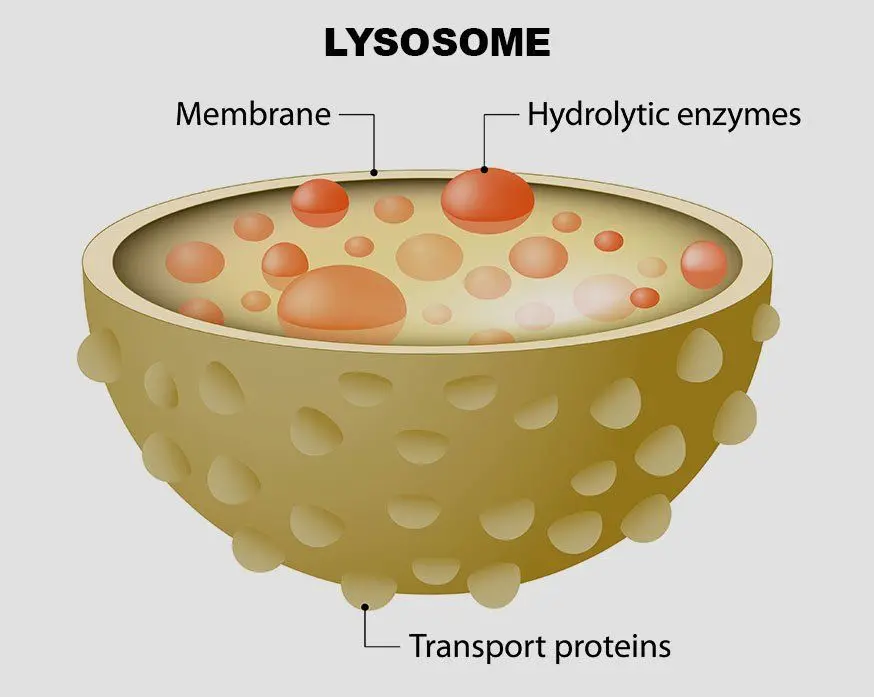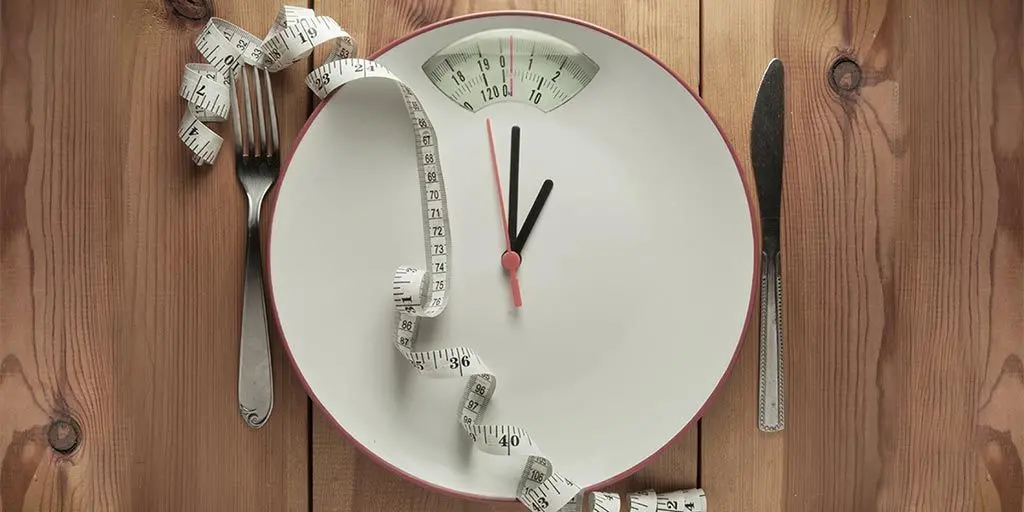First of all, what in the world is autophagy? The word itself is of Greek origin and means “self-eating.”
I remember discussing the topic in some of my biology classes in college, but that’s the extent of it. I’m intrigued by all the chatter. So, I decided to dig into the peer-reviewed research on the subject.
Table of Contents
Click to Jump to a Section
- What is autophagy?
- What does it do?
- What is it important for?
- What is a lysosome and why is it important?
- How does it work?
- What does it mean to researchers??
- How does one elicit autophagy?
- What are the applications of fasting?
- Exercise and autophagy
- Autophagy and ketosis
- Autophagy and aging
- Is there a connection between autophagy and loose skin?
- Will autophagy from fasting benefit me?
- Conclusion
- FAQ
Turns out that there has been an explosion in the amount of research on autophagy in recent years.
Let’s break down the meaning, application, of autophagy. Then look at its relevance to your healthful goals.
Glynn’s Guide:
- Longevity is the most prevalent aspect of fasting for autophagy.
- We have control over two potent initiators of autophagy: exercise and fasting.
- It also plays a role in degradation of invading bacterial cells.
- The idea of fasting to encourage cellular autophagy is to assist in cellular “clean up”. Especially as we age.
- It appears that 12-24 hours of fasting promotes autophagy the most with exercise.
What is autophagy?
At one point, it was believed that autophagy was strictly used to manage cell death. Now, it’s clear that it is to keep cells alive under stressful situations as well. In other words, it’s a stress response that is used to remove damaged organellesa specialized subunit within a cell that has a specific function and proteins.
What does autophagy do?
Believe it or not, autophagy is an essential part of muscle plasticity from exercise. It’s also essential for maintaining homeostasis (equilibrium) in our cells. Here’s a list of many of the things it does:
- Maintenance of amino acid pool during starvation
- Prevention of neurodegeneration
- Cellular longevity: applicable to overall anti-aging
- Clearance of intracellular microbes
- Tumor suppression
- Regulation of immunity
What is autophagy important for?
Recent data suggests that it is important for the following aspects:
- Regulating muscle mass
- Adaptation to exercise stimuli
- Protective function
What is a lysosome and why is it important?
A lysosome is a membrane-enclosed bag of enzymes for digesting large molecules. Lysosomes function as a cells “demolition site” for the following functions:
- Rendering ingested bacteria, viruses and toxins harmless to the cell
- Degradation of worn-out organelles
- Breakdown of glycogen and other hormones
- Degradation of non-useful tissue.
Think of a lysosome as a janitor with a plastic bag to hold materials that need recycling.
So, why is a lysosome relevant?
Think of the lysosome as the janitor holding the plastic bag for trash. Then autophagy is the actual break down of the trash within the bag.
We’re amazing beings! I don’t know too many other systems that can use their own waste to rebuild itself or turn it into energy.
The next section breaks it down a little further (no pun intended).
How does autophagy work?
Let’s break this down. Remember the lysosomes mentioned earlier? Well, imagine there’s a cell with either misfolded proteins (read defective protein) or worn out internal parts.
To clarify, let’s use the janitor analogy again. The janitor places waste products into the bag (lysosome). And then through the “magic” of autophagy, they are broken down into recyclable products.
These products can be used to build other cell structures or for energy.
In fact, if the autophagic gene is eliminated in rodents, it causes accelerated aging. This is because many of the cellular components cannot be recycled. Its absence can also cause muscular atrophy.
What does autophagy mean to researchers?
There is evidence that the deregulation of autophagy is a contributing factor to many diseases. Therefore, a door has opened to figuring out all aspects as it applies to health, longevity, and disease.
Levine states,
“In the past decade, several genetic links have emerged between autophagy defects and cancer, providing increasing support for the concept that autophagy is a bona fide tumor suppressor pathway.”
This is appealing to many of the following enthusiasts:
- People who want to promote longevity.
- People who want to promote disease prevention.
- Super fit people who want to find another cutting edge advantage.
This alone drives more research. Perhaps this article will encourage a grad-student to take it a step further and do their dissertation on the subject.
How does one elicit autophagy?
It is an automatic mechanism, which we have very little control over. But there are a few tricks to maximize the use of our “cellular quality control” machine.
The two ways you have control over it is through exercise and fasting. It can be conjured with pharmaceuticals, but that’s not to point of this article.
What are the applications to fasting?
I found conflicting beliefs as to whether fasting or exercise is better at eliciting “cellular clean-up.”
Nonetheless, nutritional and hormonal factors have the most impact.
Autophagic sensors directly respond to the availability of glucose and amino acids. This is why it is more likely to occur in a fasted state when exercising.
I scoured peer-reviewed research to find the amount of time necessary in a fasted state before autophagy occurred. I found two journal articles that were somewhat specific. One that stated between 12-24 hours of fasting would elicit autophagy. That’s vague if you ask me.
Another article stated alternate day fasting was enough to encourage it. In other words, 24-32 hours. Any more time and there will be a compromise in lean muscle tissue and bone density.
In addition to wondering when it will start while fasting, I also wondered, when does it peak?
So, I found a third article in The Journal of Autophagy stating that it peaks at 16 hours of nutrient deprivation.
But please be aware, if taken too far, autophagy can play a pro-death role.
I believe intermittent fasting is one way to safely achieve autophagy. This is without potential adverse effects of severe calorie restriction. That said, extreme starvation is likely not on anyone’s agenda as a way to maintain health. You can read more about intermittent fasting here: What is Intermittent Fasting? [Does it Work?].
Nonetheless, Levine summarized calorie restriction well.
“The notion that intermittent fasting promotes longevity is not merely a cultural belief shared by diverse civilizations throughout history; it is a scientific truth that extends across eukaryotic organisms, including yeast, flies, worms, and rodents. Dietary restriction is a potent inducer of autophagy in virtually all species.”
Exercise and autophagy
It’s now well documented that endurance exercise has an effect on the autophagy system. In fact, intense exercise has a greater effect on it than a diet. But let’s take this one step further. It’s believed that autophagy is activated even more when performing endurance exercise in a fasted state.
Sanchez stated,
“autophagy appears to be a critical factor for endurance performance since its ablation leads to impaired metabolic properties and drastic decreases in performance.”
Consistent exercise helps modulate autophagy, which has a beneficial effect on muscle homeostasis as we age. This may be one of the reasons exercise has such an “anti-aging” effect.
If you’re going to do intense exercise in a fasted state, I suggest no more than once a week. Any more and I believe you’ll compromise muscle loss.
Autophagy and ketosis
I know what you’re thinking. Since a ketogenic diet is so common, does it inspire autophagy? No, you have to be in a calorie-restricted state. In other words, fasting.
Does a ketogenic diet mixed with intermittent fasting make any difference? Well, I looked and I couldn’t find anything. Again, calorie restriction is the most prevalent factor we have control over with autophagy.
Autophagy and aging
Autophagy declines as we age. This leads to an accumulation of cellular waste material. Hence the drive to figure out a way to inspire it via intermittent fasting and exercise.
Madeo states,
“Reduced autophagy has been associated with accelerated aging, whereas stimulation of autophagy might have potent anti-aging effects.”
The absence of autophagy contributes to:
- Neurodegeneration
- Reduction of muscle mass
- Cardiac malfunction
- Excessive lipid accumulation in tissues
- Glucose intolerance
- Infection
There’s also relevance to cancer. Lee commented,
“autophagy triggered by fasting may be beneficial to normal cells but detrimental to malignant cells.”
The more we understand these systems, the closer we get to the “fountain of youth.”
Is there a connection between autophagy and loose skin?
Yes.
When we discuss autophagy, we can apply it to all of our cells. There is evidence that as we age and it slows, our skin loses elasticity.
How much can we control with autophagy and loose skin? We’re not talking epic changes, but when it comes to maintaining our youth, every little bit helps. One more good reason to control our calorie consumption, if you ask me.
Tashiro concluded,
“Collectively, these findings suggest that the autophagy pathway is impaired in aged dermal fibroblasts, which leads to deterioration of dermal integrity and skin fragility.”
Will autophagy from fasting benefit me?
Yes, it will.
We only have so much control of the process. But armed with the knowledge of how to manipulate feeding times and exercise, we can certainly maximize the return.
As we discussed earlier, exercise during fasting seems to elicit the greatest effect. Intermittent fast and do your low to moderate intensity exercise toward the end of the fast. This way you’ll maximize the effects and minimize muscle loss.
Generally speaking, if your VO2 is greater than 60% (typically jogging), you risk the potential of losing muscle mass. That’s why I suggest an intense exercise in a fasted state no more than once a week.
Will you feel the difference? I don’t believe there’s any way to feel the effects of autophagy. This is one circumstance where you just have to trust the people in the labs doing the research.
Conclusion
We’ve clearly stated the importance of autophagy. It’s a very important process for cellular housekeeping. Without it, we’ll age rapidly.
But can we trick our systems to maximize the benefits of it?
I believe we can. And since it diminishes as we age, we need all the tricks we can get.
The two components you have a great deal of control over are exercise and calorie intake. Yes, exercise induces autophagy, and fasting induces it as well. Combining the two has the most profound effect. It appears that 12-24 hours of fasting promotes autophagy the most with exercise. The 16-hour mark is a good goal if you’re doing it more than once a week.
I hypothesize that intermittent fasting one full day a week to include exercise during that time will maximize the benefits.
But, I caution you. If you’re not well conditioned, be careful exercising in a fasted state. Also, keep the intensity low to maximize the benefit without compromising muscle mass.
Question for you
Do you actively intermittent fast specifically for the longevity aspects?
FAQs on Autophagy
Why can autophagy be beneficial to cells?
Yes, it’s the primary system used to eliminate and recycle damaged and unwanted parts of the cell.
When does autophagy kick in fasting?
It appears to happen within 12-24 hours of fasting.
What is autophagy diet plan?
It’s another label for intermittent fasting or calorie restriction for the sake of longevity.
Can you feel autophagy?
No.
Where does autophagy occur?
Inside the cytoplasm of all cells within our body.
What is autophagy fasting?
It’s another label for intermittent fasting for the sake of longevity.
When does autophagy start when fasting?
12-24 hours into fasting, but I’m going to say more specifically 16 hours.
References on Autophagy:
Barnett, Aaron, Brewer, Gregory J., Autophagy in Aging and Alzheimer’s Disease: Pathologic or Protective?Journal of Alzheimer’s Disease, vol. 25, no. 3, pp. 385-394, 2011.
Eeva-Liisa Eskelinen, Paul Saftig, Autophagy: A lysosomal degradation pathway with a central role in health and disease, Biochimica et Biophysica Acta (BBA) – Molecular Cell Research, Volume 1793, Issue 4, April 2009, Pages 664-673.
Cécile Jamart, Damien Naslain, Hélène Gilson, and Marc Francaux, Higher activation of autophagy in skeletal muscle of mice during endurance exercise in the fasted state, American Journal of Physiology:Endocrinology and Metabolism , Volume 305 Issue 8, October 2013 Pages E964-E974.
C Lee & V D Longo, Fasting vs dietary restriction in cellular protection and cancer treatment: from model organisms to patients, Oncogene volume 30, pages 3305–3316 (28 July 2011).
Vitor A. Lira, et al., Autophagy is required for exercise training-induced skeletal muscle adaptation and improvement of physical performance, The FASEB Journal, Vol. 27, No. 10, October 2013
Beth Levine, Guido Kroemer, Autophagy in the Pathogenesis of Disease, Cell, Volume 132, Issue 1, 11 January 2008, Pages 27-42.
F. Madeo, N. Tavernarakis, G. Kroemer, Can autophagy promote longevity? Nat. Cell Biol., 12 (2010), pp. 842-846.
Martinez-Lopez N., Athonvarangkul D., Singh R. (2015) Autophagy and Aging . In: Atzmon, PhD G. (eds) Longevity Genes. Advances in Experimental Medicine and Biology, vol 847. Springer, New York, NY
Masaaki Komatsu, Yoshinobu Ichimura, MBSJ MCC Young Scientist Award 2009 REVIEW: Selective autophagy regulates various cellular functions, Genes to Cells , Volume15, Issue9, September 2010, Pages 923-933.
Robin Mathew, Vassiliki Karantza-Wadsworth & Eileen White, Role of autophagy in cancer, Nature Reviews Cancer volume 7, pages 961–967 (2007).
Markaki M., Tavernarakis N., Metabolic Control by Target of Rapamycin and Autophagy during Ageing – A Mini-Review, Gerontology, 2013, Vol.59, No. 4 June 2013.
Eva Masiero, et al, Autophagy Is Required to Maintain Muscle Mass, Cell Metabolism, Volume 10, Issue 6, 2 December 2009, Pages 507-515.
Noboru Mizushima, Tamotsu Yoshimori, Beth Levine, Methods in Mammalian Autophagy Research, Cell, Volume 140, Issue 3, 5 February 2010, Pages 313-326.
Anthony M. J. Sanchez, Henri Bernardi, Guillaume Py, and Robin B. Candau, Autophagy is essential to support skeletal muscle plasticity in response to endurance exercise, American Journal of Physiology,
Volume 307 Issue 8, October 2014, Pages R956-R969.
David C.Rubinsztein, Guillermo Mariño, Guido Kroemer, Autophagy and Aging, Cell, Volume 146, Issue 5, 2 September 2011, Pages 682-695.
Céline Schwalm, et al., ,Activation of autophagy in human skeletal muscle is dependent on exercise intensity and AMPK activation, The FASEB Journal, 8 May 2015.
Kanae Tashiro, Mayumi Shishido, Keiko Fujimoto, Yuko Hirot, Kazuyuki Yo Takamas, Gomia Yoshitak, Tanaka, Age-related disruption of autophagy in dermal fibroblasts modulates extracellular matrix components,Biochemical and Biophysical Research Communications, Volume 443, Issue 1, 3 January 2014, Pages 167-172









